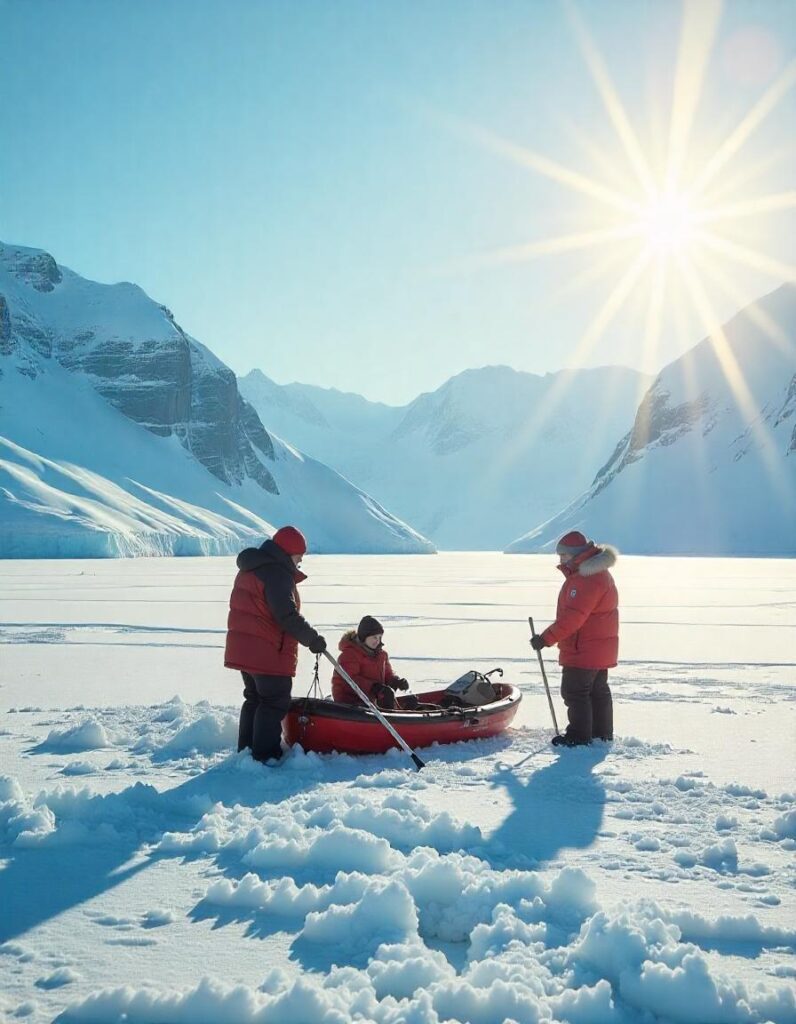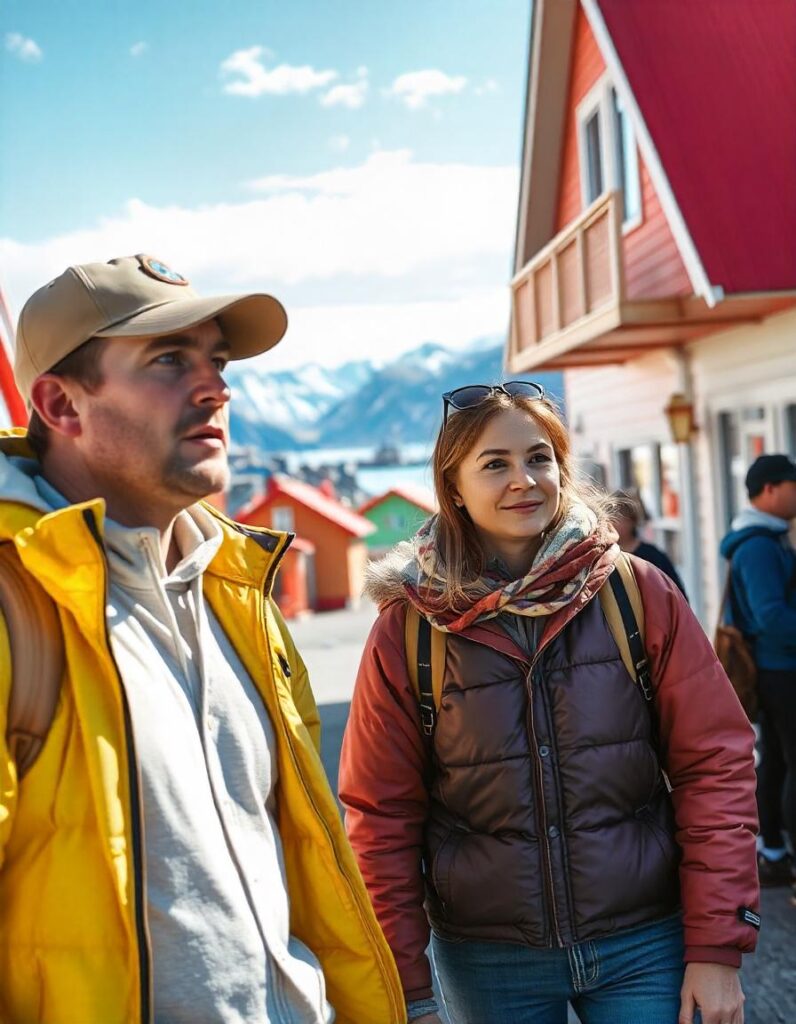Greenland is often seen as a mysterious land of ice and snow, yet it holds so much more than meets the eye. This vast, sparsely populated Arctic wonderland is a treasure trove of culture, natural beauty, and environmental importance. Let’s explore the many facets of Greenland, from its icy landscapes to its warm-hearted people.
Geography of Greenland

Location and Size
Greenland is the largest island in the world, covering over 2.1 million square kilometers. Despite its massive size, it’s surprisingly remote, situated between the Arctic and Atlantic Oceans. Approximately 80% of its surface is covered by an ice sheet, making it one of Earth’s most unique regions.
Climate Conditions
The climate in Greenland varies significantly between the coastal regions and the inland ice sheet. Coastal areas experience relatively mild temperatures during summer, while the interior remains cold year-round. The stark seasonal changes bring long, dark winters and continuous daylight during the summer months.
Arctic Landscapes
Greenland’s landscapes are truly breathtaking. Picture towering icebergs drifting in crystal-clear waters, fjords carved by glaciers, and snow-capped mountains as far as the eye can see. These natural wonders have made Greenland a top destination for nature enthusiasts.
History of Greenland
Early Settlements
Greenland has been inhabited for over 4,500 years, with the earliest settlers being Paleo-Inuit groups. Their resilience in such a harsh environment is a testament to human adaptability.
Norse Colonization
In the 10th century, Norse settlers led by Erik the Red arrived. They established farming communities, some of which lasted for centuries. Their presence has left a lasting historical and archaeological legacy.
Danish Influence
By the 18th century, Greenland became a Danish colony. Today, it remains part of the Kingdom of Denmark, though it enjoys extensive autonomy.
The People of Greenland
Demographics
With a population of around 56,000, Greenland is one of the least densely populated places on Earth. Most residents are Inuit, with a rich cultural heritage rooted in Arctic traditions.
Inuit Culture and Traditions
The Inuit way of life revolves around harmony with nature. Traditional hunting, kayaking, and storytelling remain integral to their culture. Festivals and music play a crucial role in preserving their identity.
Urban and Rural Living
The capital, Nuuk, is a bustling city with modern amenities, while rural areas offer a glimpse into a more traditional, slower-paced way of life.
Economy of Greenland
Key Industries
Fishing is the backbone of Greenland’s economy, with shrimp and halibut being major exports. Mining is also growing, thanks to Greenland’s rich deposits of rare earth minerals.
Emerging Opportunities
Tourism and renewable energy are emerging industries, with the potential to significantly boost Greenland’s economy. Visitors are drawn to its pristine environment and unique cultural experiences.
Economic Challenges
Greenland faces challenges like limited infrastructure and reliance on imports, but its untapped resources present opportunities for growth.
Environmental Importance of Greenland
The Ice Sheet
Greenland’s ice sheet is the second largest in the world and plays a critical role in regulating global sea levels.
Flora and Fauna
Despite the harsh conditions, Greenland is home to diverse wildlife, including polar bears, Arctic foxes, and humpback whales. Its tundra blooms with vibrant flowers during the brief summer.
Climate Change Concerns
Greenland is at the forefront of climate change. The melting ice sheet not only threatens local ecosystems but also has global implications for sea-level rise.
Tourism in Greenland

Popular Attractions
Greenland offers unparalleled experiences, such as visiting the Ilulissat Icefjord, a UNESCO World Heritage site. The Northern Lights dazzle visitors during the long winter nights.
Adventure Tourism
From dog sledding and snowmobiling to hiking and whale watching, Greenland is an adventurer’s paradise.
Governance in Greenland
Autonomy Within Denmark
Greenland is an autonomous territory within the Kingdom of Denmark. It governs most of its affairs while Denmark oversees defense and foreign policy.
Political Landscape
The local government is committed to sustainable development and ensuring the rights of its Indigenous population.
The Future of Greenland
Opportunities and Challenges
Greenland is poised for growth in tourism, mining, and renewable energy. However, balancing development with environmental preservation remains a top priority.
Global Geopolitical Role
As Arctic ice melts, Greenland’s strategic location has drawn interest from major powers. Its role in geopolitics is becoming increasingly significant.
Conclusion
Greenland is a land of contrasts: icy yet warm, remote yet connected. Its breathtaking landscapes, resilient people, and environmental significance make it a place like no other. As we face global challenges, Greenland’s future is a reminder of the delicate balance between nature and progress.
FAQs
1. What is Greenland best known for?
Greenland is renowned for its massive ice sheet, stunning fjords, and rich Inuit culture.
2. Is Greenland really icy?
Yes, about 80% of Greenland is covered by ice. However, the coastal areas reveal lush greenery during summer.
3. How can I travel to Greenland?
You can reach Greenland by flights from Denmark, Iceland, or via cruise ships.
4. What languages are spoken in Greenland?
Greenlandic (Kalaallisut) is the official language, but Danish and English are also widely spoken.
5. Why is Greenland important for climate research?
Greenland’s ice sheet provides vital data on climate change, and its melting impacts global sea levels.




Leave a Comment